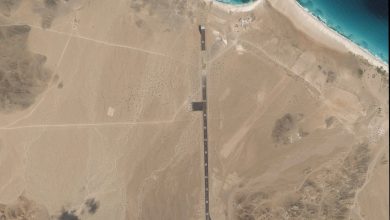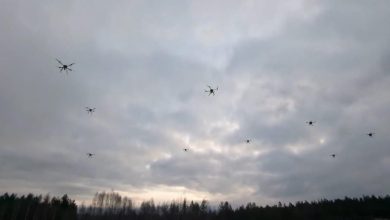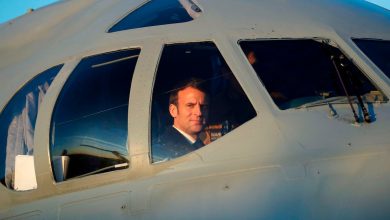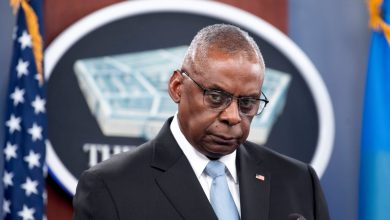Corruption may slow China’s ability to one day invade Taiwan, DOD says
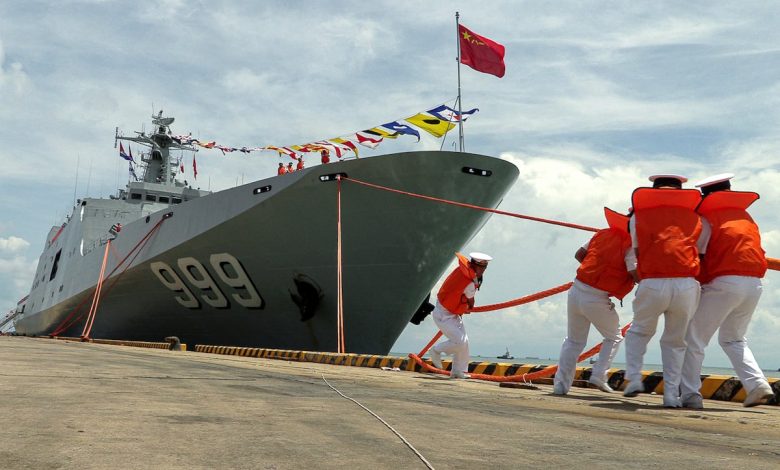
Rampant corruption in the Chinese military may be slowing its ability to one day launch an invasion of Taiwan, according to the Pentagon’s annual report on China’s armed forces released Wednesday.
While the People’s Liberation Army is still progressing overall — deploying ships farther from its shores and displaying longer-range missiles — a yearslong anti-corruption probe may delay some of its goals related to 2027, an important mile marker for the PLA.
Between July and December of 2023, at least 15 senior members of China’s military and defense industry were sacked over suspicions of graft, the report found. And the subjects extend to the very top.
RELATED
In November, a member of China’s governing seven-member military board was removed and placed under inquiry. Beijing’s Defense Minister Dong Jun is also reportedly being investigated for corruption, though different parts of the U.S. government aren’t yet certain. If charged, Dong would be the country’s third consecutive defense minister to be charged with corruption.
Uprooting graft in the PLA has long been a priority of Chinese leader Xi Jinping and a place of insecurity despite its growing power. Beijing has the world’s largest navy, an increasingly advanced fleet of aircraft and a surging nuclear arsenal.
These advances are part of what U.S. officials say is the largest peacetime military buildup since the 1930s. The new equipment, however, is far easier to track than the overall quality of China’s military, which hasn’t fought a war in more than 40 years.
Xi has told the PLA it should have the ability to invade Taiwan by 2027, though he hasn’t issued orders to do so, according to American intelligence. A senior U.S. defense official, briefing reporters on the condition of anonymity, said Xi had “reaffirmed his commitment” to that goal but that the corruption probe may be hindering it.
“It’s having some impact already,” the official said.
Despite multiple questions, the official wouldn’t say whether China was on track to meet its aims for 2027, which have to do with using more advanced technology and training different parts of its military to operate together. Nor would the official say, specifically, what the impact of the anti-corruption purge would be for Taiwan.
“The substantial problems they have with corruption that have yet to be resolved certainly could slow them down on the path toward the 2027 capabilities-development milestone and beyond,” the official said.
In simpler terms, China has specific goals planned around the year, which if achieved could help with an invasion of Taiwan. Losing so many of its military leaders due to corruption may interrupt that progress.
Other important weaknesses noted in the report include the quality of commanding officers, urban warfare and logistics — all surely key in any attack on Taiwan, separated from the mainland by 100 miles of rough seas.
These notwithstanding, Xi has made it a hallmark of his time in office to continue China’s pursuit of a “world-class” military by the middle of this century. In 2024, the Pentagon estimated, Beijing spent between $330 and $450 billion on its armed forces, a number hard to track because of the closed nature of China’s government.
In the last year alone, China also added around 100 operational nuclear warheads, reaching 600 by mid-2024, according to the report. American officials have tracked the rapid growth in Beijing’s arsenal for the last few years and have been frustrated by what they say is an unwillingness to discuss the motives behind the buildup in their discussions with the PLA.
“They’ve often stated with us that they continue to maintain their nuclear force at the level that’s required for their national security needs. Our response to them has been that they must judge that their national security requirements have changed,” the official said.
The annual China Military Power Report is America’s most detailed public assessment of its main competitor and this year’s report marks the last during Joe Biden’s presidency. President-elect Donald Trump has filled his incoming National Security Council and State Department with China hawks, though his return to the White House also brings uncertainty, as captured in his invitation for Xi to attend the Jan. 20 inauguration.
Noah Robertson is the Pentagon reporter at Defense News. He previously covered national security for the Christian Science Monitor. He holds a bachelor’s degree in English and government from the College of William & Mary in his hometown of Williamsburg, Virginia.
Read the full article here

